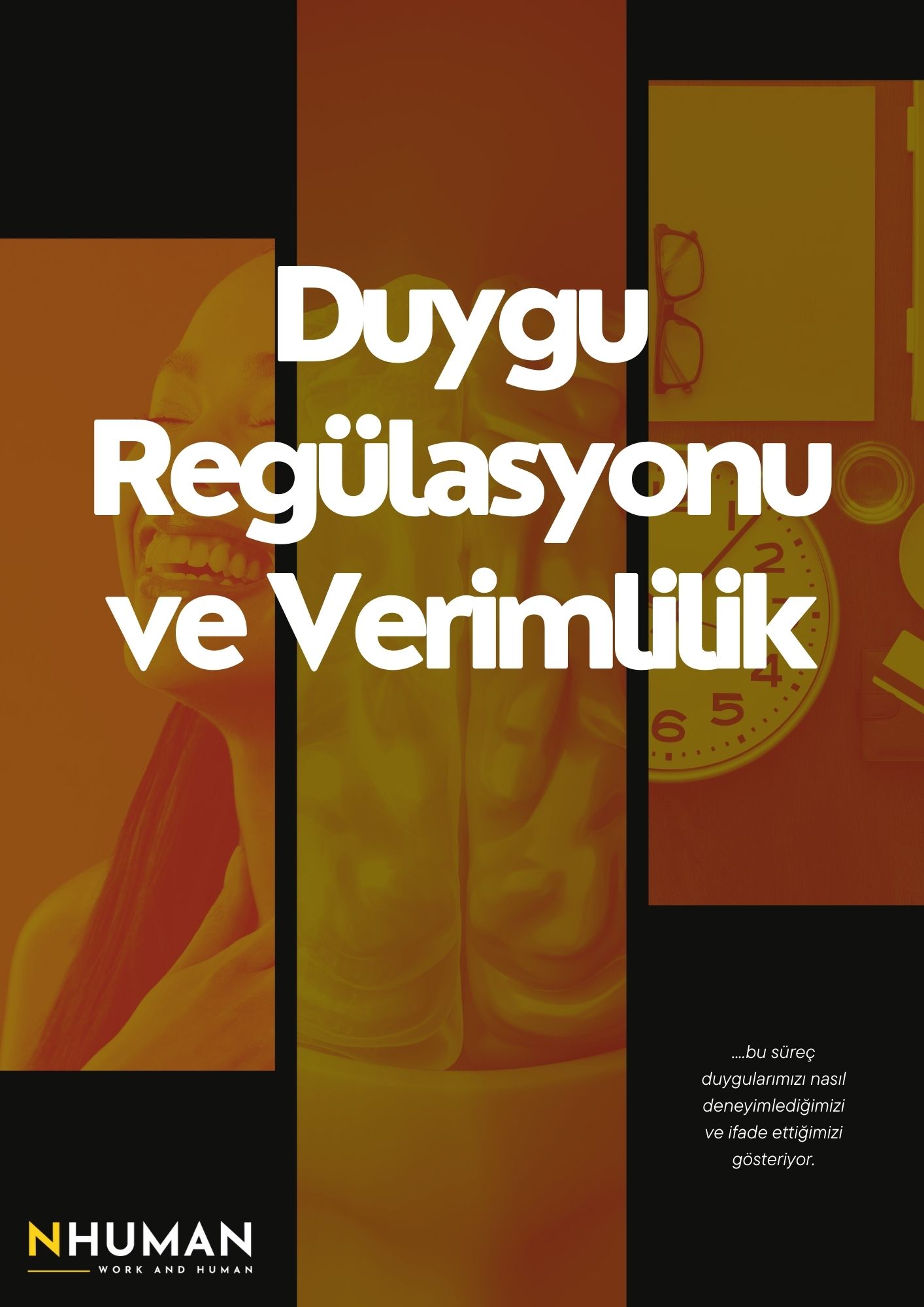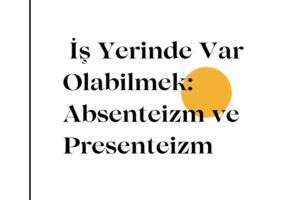
Emotion Regulation and Efficiency
Emotion Regulation and Efficiency
Today, we live in an age where everything is changing rapidly. Technological advances, the instant spread of news, the development of communication tools and the constant movement of life have completely changed people's perception over time. The fast lifestyle, increasing competition in the business world and a constant flow of information force people to keep up. However, this rapid change and hectic pace of life shows us that it takes more effort for people to manage their emotions.
Emotion regulation is the ability to identify, understand and manage and express our emotional responses. In other words, this process shows how we experience and express our emotions. Being in control of our emotions, maintaining our emotional balance and maintaining a positive mood is a very important skill in today's complex and fast-paced world.
Emotion regulation has an important place in business life. Our emotions are a part of us, and stripped of them, it's almost impossible for us to function like a machine. Therefore, if we can improve our emotion regulation skills in our workplaces, our performance and psychological health at work will also be positively affected by this situation. Studies show that employees with high emotional intelligence are more successful in reaching their business goals than their colleagues. Similarly, literature studies revealed that the occupational accidents of employees who received emotion regulation training were reduced by half and productivity increased.
Why is emotion regulation important?
- Reduces Stress and Anxiety: Fast-paced life can force the balance between work and private life. Intense work schedule, a constant flow of information and ongoing expectations can increase our stress and anxiety levels. Emotion regulation helps us cope with stress and maintain our mental health.
- Strengthens Relationships: The fast-paced lifestyle can make it difficult for people to understand and empathize with their emotional responses. Emotion regulation helps us communicate better in relationships and resolve conflicts more maturely.
- Improves Decision Making: Our emotions also influence our decision-making process. Uncontrolled emotions can lead us to make irrational decisions. Emotion regulation improves our decision-making ability and enables us to make healthier, more thoughtful decisions.
- Increases Creativity: The fast lifestyle and the constant flow of information do not allow our minds to rest. Emotion regulation increases creativity by relaxing our minds and strengthens our problem-solving skills.
- Being Happier and Satisfied: Emotion regulation increases positive emotions and helps us overcome negative emotions. This in turn increases our overall happiness and satisfaction with life.
- Reduces Procrastination Behavior: While the fast and busy lifestyle forces people to fulfill many tasks on time, time management skills and the habit of not procrastinating have become very important. However, lack of emotion regulation can negatively affect procrastination behavior. Procrastination is the tendency to consciously or unconsciously put off a predetermined task or responsibility. This behavior may be based on our current emotional state and emotional difficulties. For example, when we don't like having a task done or are faced with an overwhelming situation, procrastinating may seem like an attractive escape route.
In today's fast-paced lifestyle, emotion regulation is an important tool for maintaining our emotional health, strengthening our relationships, and leading a happier life. Knowing ourselves, understanding our emotions, and managing them properly allows us to be better prepared for today's challenges. Working on emotion regulation is an important step towards achieving inner peace and emotional balance. Therefore, in the fast flow of life, we should take time for ourselves and improve our emotion regulation skills to maintain our emotional well-being.
In order to increase corporate emotional intelligence and increase the psychological health of employees, institutions can work on improving their employees' emotional intelligence; They can organize Emotion Regulation Training prepared by mental health experts for their employees. To view the tutorial on this topic Click.
Etiket:understanding, information flow, employees, emotion regulation, emotional balance, emotional health, emotional responses, emotional intelligence, education, procrastination behavior, instant dissemination of news, rapid change, fast lifestyle, expression, communication, development of communication tools, relationships, strengthen relationships, business life, business goals, accidents at work, to decide, anxiety, performance, psychological health, rivalry, mental health professionals, stress, technological advances, productivity, creativity, time perception, time management



